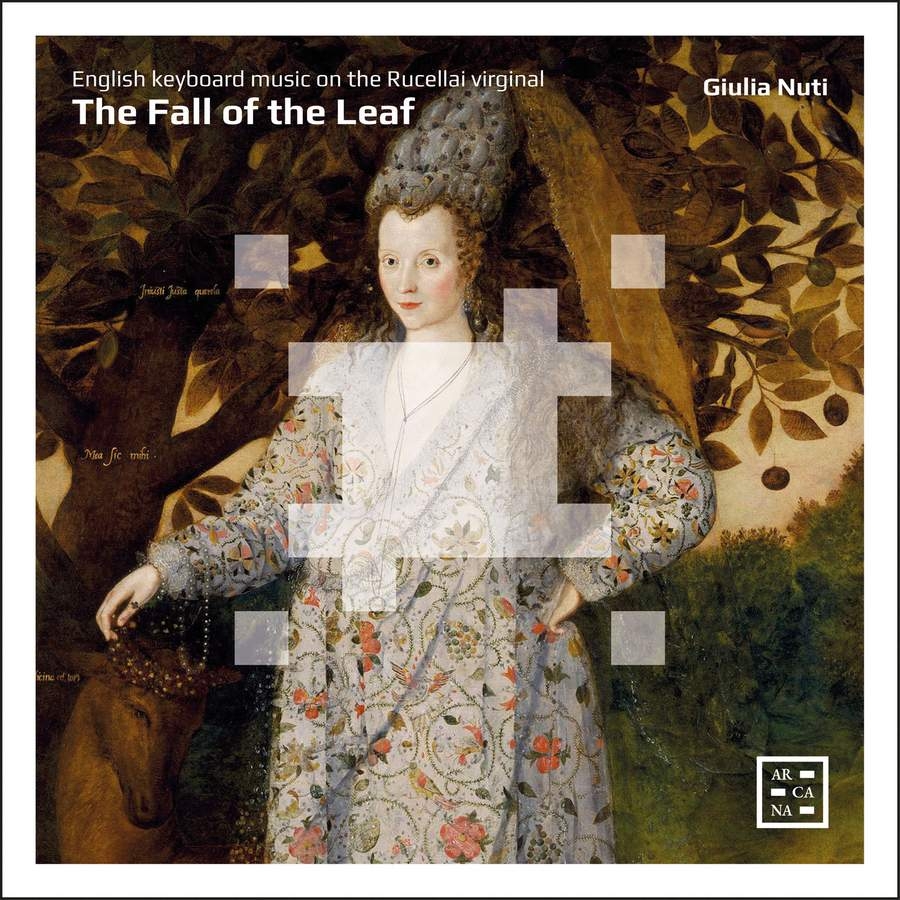Košík
Váš košík je momentálne prázdny.
The Fall of the Leaf: English keyboard music on the Rucellai virginal
15,00 €
Formát:
CD
Dostupnosť:
7-14 dní
Katalógové číslo:
A532
EAN kód:
3760195735329
Autori:
Giulio Caccini, James Harding, John Amner, John Dowland, John Tomkins, Martin Peerson, Thomas Campion, Thomas Morley, William Byrd
Interpreti:
Giulia Nuti
Vydavateľ:
ARCANA
Zoznam skladieb
1 anon.: Prelude2 Dowland: Solus cum sola: Pavan (Arr. for Keyboard)
3 Dowland: The Frog: Galliard (Arr. for Keyboard by John Wilbye)
4 Peerson: The Primrose, FVB 271
5 Tomkins, J: John Come Kiss Me Now
6 Dowland: Piper’s Pavan (Arr. for Keyboard by Martin Peerson)
7 Dowland: Piper’s Galliard "If My Complaints" (Arr. for Keyboard by William Byrd)
8 Peerson: The Fall of the Leafe, FVB 272
9 Byrd: The Bells, FVB 69
10 Dowland: The Firste Booke of Songes: No. 5, Can She Excuse
11 William Tisdall: Almand, FVB 213
12 William Tisdall: Coranto
13 Amner: O Lord, in Thee is All My Trust
14 Campion: Shall I Come? (Arr. for Keyboard)
15 Morley: Passamezzo: Pavan
16 Caccini, G: Amarilli mia bella (Arr. for Keyboard by Peter Philips)
17 anon.: In Sorrows Drown’d (Arr. for Keyboard by Briant Ladlawe)
18 Dowland: Lachrymae: Pavan (Arr. for Keyboard by Fernando Richardson)
19 Harding: Galliard in D Minor (Arr. for Keyboard by John Bull)
Popis
Celebrating the golden age of English keyboard music from the late sixteenth and early seventeenth centuries, this personal anthology features works by the greatest composers of the time. John Dowland’s beguiling Pavanes and Galliards, transcribed by Martin Peerson and William Byrd, are punctuated by John Tomkins’s dazzling song-variations, Thomas Morley and William Tisdall’s whirling dances, and ravishing madrigals set by Peter Philips and others. John Amner’s masterful O Lord, in Thee is all my trust contrasts with William Byrd’s evocative, chiming variations The Bells, showcasing the different styles of these composers.
This recording extends Giulia Nuti’s oeuvre of critically acclaimed recordings on historical harpsichords; her solo recital Le Coeur et l’oreille: Manuscript Bauyn (Arcana, 2017), recorded on the harpsichord built by Louis Denis in 1658, was awarded the Preis der Deutschen Schallplattenkritik. In this recording Giulia plays an exquisite Italian virginal from c. 1575.
Prihlásenie
Newsletter



